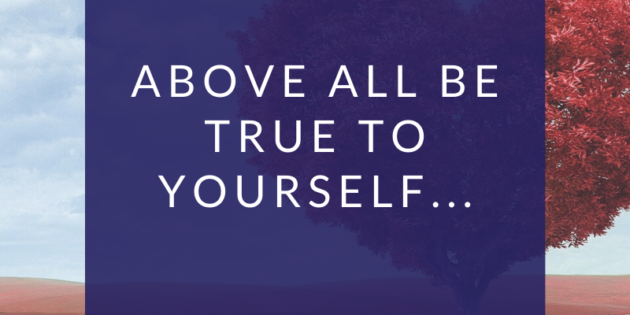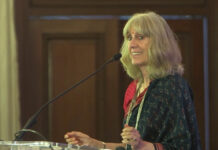A Pakistani woman, Zainab A. Khan, keeps warning Hindus on Twitter (@ZainabAKhan2) that they have no chance against Muslims if they don’t realise the danger, they are in. She seems to be genuinely caring towards Hindus, which finds an explanation in her pinned tweet.
By Maria Wirth
It reads: “Who am I? Lawyer. Dated & married an amazing Hindu guy, who was killed by my family when he visited Pakistan after being promised safe visit. Lost my voice after being shot but still working full time as a lawyer. This should settle this. Stop asking if I’m Muslim or Pakistani.”
She recently put out a tweet asking Hindus to understand that “in Islam, religion is above all”.
This set me thinking. What actually should be above all? The first reply to my tweet asking this, said “Nation”.
Usually, Hindus demand from Muslims that ‘nation’ and ‘constitution’ must come first. But is it so even for Hindus?
Spontaneously, I felt that the most important thing is to be true to oneself, having integrity, doing what feels right according to one’s conscience, which basically means: following Dharma.
Suppose the national authorities ask one to do something that does not feel right. It can happen. It happened in Nazi Germany and happens even today in dictatorships.
Now if a Hindu is convinced that it is not right and that one’s Ishta Deva would not approve of doing it, would he not put Dharma and his Ishta Deva first?
Dharma is often equated with religion. Does it mean, Muslims and Hindus are on the same page by putting ‘religion above all’?
Not quite. The reason is that Dharma is different from the ‘religions of the book’ to which Islam and Christianity belong. These religions don’t ask their followers to follow their conscience or Dharma but demand that they follow a book. The book is the highest authority for them, not their innate knowledge about what is right and wrong. I learnt already as a child in catechism class that I must follow the Church if there is a discrepancy between my conscience and what the Church teaches…
Now if the book teaches what feels right, there is no problem. For example, both the Bible and the Quran ask their followers to believe in a Supreme Power, which is the one Source of our being, and fully trust it. This makes sense. They also ask to be charitable and be good human beings. That is also in tune with one’s conscience.
So, is there even an issue where the religions of the book are not in tune with one’s conscience and would people even follow it?
Probably, most people would not follow it and would not go against their conscience. For example, if a book claimed that only those people who believe in this book and its author have a right to be on earth, and all others can be treated badly and even killed, it wouldn’t feel right. At least it needed some proof. Moreover, if this claim is not only made for one book but for two different books, it would surely make people skeptical.
But, if people are forced to choose between being killed and following the book, most people probably would choose the book over their conscience. Once accepted, the following generations can easily be indoctrinated right from childhood, which is very effective.
For example, every new generation of Muslim children reads in Quran 2.116: “Fighting has been made obligatory for you, much to your dislike. It is quite possible that something which you don’t like is good for you and that something which you love is bad for you. Allah knows and you don’t.”
Blind belief is not natural for humans
This indoctrination has been going on ever since the dogmatic religions have been founded by Jesus and Mohammed respectively. They divide humanity into those who are right, good and saved and those who are wrong, bad and damned without any basis except the alleged claim by one person many centuries ago. This claim needs blind belief and blind belief is not natural for human beings who have been given intelligence.
The result is a divided humanity and a lot of suffering with millions killed over the centuries in the name of religion.
Humans have an inbuilt capacity to know what is right and wrong
How can we convince the followers of the religions of the book, that we humans have an inbuilt capacity to know what is right and what is wrong and that it needs to be heeded? We all know that we come from the same Source and have a right to be here on earth. We all know that it’s wrong to harm others purposely. We all know that being helpful and compassionate is better than being selfish and cruel. And in situations where we are not sure what is right, we should take inspiration from scriptures, but the advice needs to make sense and feel right.
An ex-Muslim, who goes by the name “Apostate Prophet” on YouTube once narrated in a video what happened when he disclosed to his parents in Turkey that he doesn’t believe any longer in Islam. His parents were strong believers, but lucky for him, they didn’t kill him – the punishment which is prescribed for apostasy. I remember him saying something like ‘Fortunately, most Muslims are not as bad as what Islam wants them to be.’
It means, the conscience of even strong book-believers has not been fully silenced. Is it possible to make more people listen again to their inner voice and follow Dharma and be well-meaning to ALL?
How?
This article first appeared in www.mariawirthblog.wordpress.com and it belongs to them.







